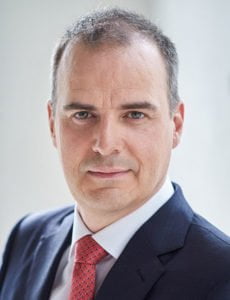
Jonny Andersen
This week a new visiting lecturer – Jonny Andersen, who will teach Ground Services Management, joined the team of lecturers of the Aviation Management study programme at Kazimieras Simonavičius University Business School.
Jonny Andersen is seasoned and tested aviation executive with 25 years of extensive global experience and expertise in leading change, directing airport and ground operations, providing business transformations and managing infrastructure projects.
He has worked as CEO of Kenya Airports Authority where he oversaw an organization with 2000 employees running operations and development of 18 state owned aerodromes in Kenya. Before joining Kenya Airports Authority in Nairobi, Kenya, he worked as Director National Airports at Avinor in Norway with the responsibility of running six airports in Norway. During his course of employment, he also held the position as Senior Vice President Ground Operations at AirBaltic in Latvia.
He is a guest lecturer at the University of Geneva, teaches airport strategy for IATA clients around the world and advices among others AIRBUS on different airport related matters.
Highlights of expertise:
Jonny Andersen is the founder of AirportWorks, an independent advisory practice for airport operators, private and public airport owners as well as institutional investors and regional development banks. AirportWorks provides, through its network of global industry experts, advice in the areas of airport privatization, sustainable optimization of airport systems, infrastructure development and airport strategy planning.
Jonny holds a Master of Science degree from Cranfield University in the UK. He is an associate of Modalis Infrastructure Partners Inc. in Canada and has since 2016 been a Fellow of the Royal Aeronautical Society (FRAeS).
“We are glad that the team of lecturers in Aviation Management study program at KSU is growing rapidly and academic positions are filled by excellent and well-known aviation experts, practitioners, and professors from all over the world. This allows to ensure the exceptional quality of the modules taught in the study program, and at the same time shows that this study program and its team of professional teachers are not subjacent to other famous aviation study programs in Europe”, says Deimantė Žilinskienė, KSU Business School Director.
Kazimieras Simonavičius University in cooperation with Lithuanian Association of Hotels and Restaurants, is organising an open lecture named “Tourism, hospitality and experience industry of Tomorrow”. On April 30th 10 AM, the lecture will be given by Vesa Heikkinen, a Finnish expert of tourism, hospitality, food industry and services. The lecture is intended for tourism professionals, partners, lecturers, students and graduates of Kazimieras Simonavičius University. Duration of the lecture – 45 min.
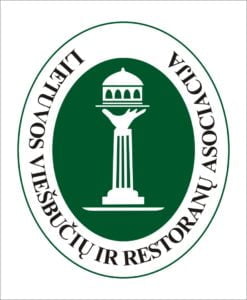 The topics of the lecture:
The topics of the lecture:
Vesa Heikkinen Antero is a Future Researcher in the fields of tourism hospitality, food industry and services. He is a Senior advisor on European tourism, hospitality, experience and food industry, service innovations, principle lecturer at Haaga-Helia University of Applied Sciences, and Expert columnist of Aromi journal. He holds a doctoral degree in Pedagogy.
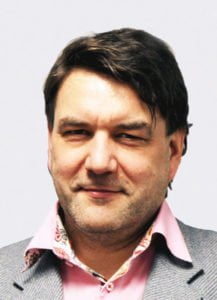
Vesa Heikkinen
Vesa Heikkinen Antero’s research, innovation and teaching areas:
Registration will be held here up to April 29th.
An open lecture, named “Aviation and COVID-19: The path to recovery”, by Dr. Anil Padhra, associate professor at Business School of Kazimieras Simonavičius University, will be held on May 5 at 18 PM.
The lecture is intended for aviation professionals, partners lecturers, students, graduates of Kazimieras Simonavičius University and for all who is interested.
Duration of the lecture – 45 min.
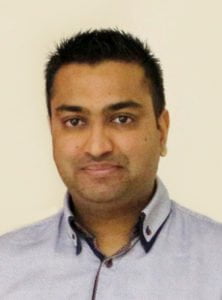 Anil Padhra – KSU Aviation Management bachelor’s study programme visiting associate professor for International Aviation and Aviation Finance modules, Head of Aviation at the University of West London. Anil is a Member of Royal Aeronautical Society, a Fellow of the Higher Education Academy.
Anil Padhra – KSU Aviation Management bachelor’s study programme visiting associate professor for International Aviation and Aviation Finance modules, Head of Aviation at the University of West London. Anil is a Member of Royal Aeronautical Society, a Fellow of the Higher Education Academy.
He previously held positions as a Senior Lecturer and Principal Lecturer in Aviation at universities in the UK. Anil has experience in developing and designing aviation courses for managers, commercial airline pilots and air traffic controllers. Prior to joining Higher Education, Dr. Padhra held operational roles with NATS (Air Traffic Management), easyJet airline (Operations Research) and British Airways (Aerodrome and Aircraft Performance).
Lecturer holds an Aerospace Engineering degree from the University of Liverpool, a Master’s degree in Aeronautics from Imperial College London and a PhD in Meteorology from University of Reading.
Registration will be held here up to May 4.
Kazimieras Simonavičius University is accepting applications for its Aviation Management Online Studies Programme.
Read more on it at: https://bit.ly/2Sbh9ZJ
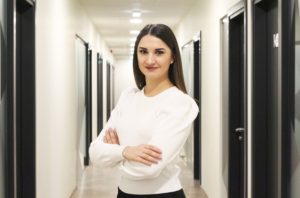
Augustė Bajorūnaitė (KSU photo)
Augustė Bajorūnaitė has been carving the sky of the United Arab Emirates for more than four years. The work of a flight attendant takes her to the most interesting and unexpected places in the world. Since September, a new venture has appeared on Augustė’s agenda – Vilnius, Kazimieras Simonavičius University, where she started studying aviation management remotely.
How did it happen that you chose a job of a flight attendant also known as a dream profession?
I never thought of working as a flight attendant as a dream profession. I was working in the real estate sector, while browsing on Facebook, I noticed an announcement that a new crew team was being hired for United Arab Emirates airlines. I thought I would try. I didn’t set high expectations for myself; I was relaxed. Maybe that’s why I passed all the selection stages quite easily and went to Dubai as early as next week. Everything happened very quickly. Thus, began my career as a flight attendant.
What does your typical workday look like?
All days are different. The day and night have no meaning in this work, such as one morning I travel to Australia, the next morning to Dubai. If we have domestic short flight, we fly and return home, but if we have an international flight, we have 2 days off in an another city, and this is enough time to explore the new city, but lack of sleep and the so-called Jet lag sometimes is a challenge.
Also, we should always be well prepared and ready in neat uniforms, hairstyles and makeup before each flight. We can’t turn blonde to brunette overnight, such experiments with looks have to be forgotten.
Maybe you’d like to share an interesting incident that happened during flight that passengers never knew about?
There have been no serious or critical events in my practice yet. There were a few minor cases when we flew to Tanzania and found ourselves right next to a spinning whirlwind. We had to turn a few wheels before the weather changed and we could land.
There are some funny situations when dealing with passengers from different cultures. If we fly from Moscow, we have to monitor the amount of alcohol people consume. One passenger, who had multiple alcoholic drinks, slept so deeply that his awakening was only possible with the shouting of Russian army teams.
The most interesting thing is to watch the passengers flying to Mecca to perform Hajj (a pilgrimage of Muslims that takes place every year). After a certain distance to Mecca, the captain informs the passengers and people start washing and wearing religious clothes called Ihram. From that moment on, flight attendants cannot touch passengers. We also change into formal wear ourselves and thus pay our respects.
Your job is interesting but at the same time risky, maybe it influenced you to think about prospects in aviation, or changing your career direction? What prompted you to choose distance aviation management studies?
Work is really fun and engaging but not for a lifetime, it would be too hard to work in such a stressful mode. Therefore, I started thinking about what I would like to do in the future, and I realized that I really want to stay in aviation industry. I started to think about higher studies but working in such a job makes it very difficult to work and study on campus on permanent bases. I was wondering how I could manage this, but luckily, I discovered distance Aviation Management studies.

Augustė Bajorūnaitė (KSU photo)
How do you assess your choice today, is work and study compatible?
I am very happy with these studies. Firstly, because it is very easy to combine work and studies: lectures are recorded, so you can join and listen at any day and hour. Teachers are not only academics but also practitioners, which is very important because aviation is a very specific field. Co-students are also from all over the world. I recently flew to Bangkok, where I met a classmate living there and working for FL Technics, and later we met in lectures in Vilnius. The third important factor was price. Compared to the Asian and European universities I have considered, the tuition fee offered by this university was the best.
I would recommend this study program first to those who already work in the aviation sector, as it is much easier to understand all the processes that take place in aviation when you have at least a minimum basic knowledge of course, I recommend distance learning to those who have a strong determination and willpower, because there will be no professors or classmates nearby during the lectures, you have to be independent and take the responsibly for yourself.
Read more about Aviation Management Online Study Programme.
![]() A partner of Kazimieras Simonavičius University Big Data Excellence Centre, Futures Platform, has created a view of the world after COVID-19. As Futures Platform team wants to show its support to organisations around the world, access to foresight radar is free of charge.
A partner of Kazimieras Simonavičius University Big Data Excellence Centre, Futures Platform, has created a view of the world after COVID-19. As Futures Platform team wants to show its support to organisations around the world, access to foresight radar is free of charge.
The radar displays a holistic view of the world after Covid-19 with important drivers of change, and the latest news regarding them. On this radar you can see all aspects of the change, which hopefully will help you in decision-making and planning for the future.
The news on the topics is refreshing daily. Futures Platform futurists are also continuously researching the topic and they will update the radar with new findings. Thus the radar is worth visiting frequently.
To access radar click here.
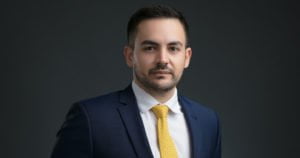
Diogenis Papiomytis
A remote lecture, named “The State of the Aviation Industry post COVID-19”, by Diogenis Papiomytis, a lecturer at Business School of Kazimieras Simonavičius University, will be held on April 20 at 5 PM. The lecture is intended for aviation professionals, partners lecturers, students and graduates of Kazimieras Simonavičius University. Duration of the lecture – 45 min.
Diogenis Papiomytis – KSU Aviation Management bachelor’s study programme visiting lecturer for International Aviation module, Senior Manager at IATA Consulting. He is an expert of industry research reports and strategy consulting projects, with clients coming from Airlines, Airports, Aircraft Manufacturing and Aviation Aftermarket segments. Lecturer has an experience in the Commercial Aviation research and consulting practice of Frost & Sullivan, a global aviation consultancy. He previously worked in Corporate Strategy department as Corporate strategy Manager of CEO Office at Etihad Airways and as a Senior Lecturer in Aviation Studies at Buckinghamshire New University in the UK. Diogenis holds a BA (Hons) in Modern Languages and International Business, a MSc in Air Transport Management from Cranfield University and a MBA from Cass Business School at London City University.

Kazimieras Simonavičius University’s Big Data Competence Centre, in cooperation with the team at the strategic insight tool Futures Platform, is organising an open lecture on future insights named “Future or futures?” The lecture speaker will be Finnish scientist, futurologist and insights expert Dr. Tuomo Kuosa. The remote lecture will be held on April 8 at 4PM. We invite you to participate!
Often we associate predicting the future with mysticism, however, for long years now, this has also been an object of scientific study. Future insights are a means of thinking about the future, pondering on it and planning, creating innovations in various areas of public activities in pursuit of increased efficiency and increasing competitiveness in the face of contemporary global changes.
Futures Platform expert, futurologist Dr. Tomas Kuosa, who holds 15 years of experience in strategic insights, the development of future studies methodology and other areas related to future predictions will discuss:
Registration will be held here up to April 7.
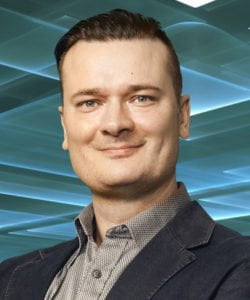
Dr. Tuomo Kuosa
Dr. Tuomo Kuosa is one of the founders of Futures Platform, the head futurologist and the director of the content team. He has more than 15 years of experience in strategic insights, horizon scanning, scenario, future studies methodology creation, public change forecasting and lectures on the future. Dr. T. Kuosa has written tens of academic works and four books on insights. He works in Finland and Singapore, consulting various organisations around the world.
Futures Platform is a strategic insights tool, which helps companies plan their operations in consideration of changes looming in the future. The tool was created and commercialised by Finnish scientists and specialists in 2016. It allows to foresee trends and form a broad perception of social changes in technology, economics, the environment and politics. The unique Futures Platform information vault holds data on more than 700 future phenomena. More about Futures Platform can be found here: https://bit.ly/2QXhm1N
Big data studies, research and practical application are some of the priorities of Kazimieras Simonavičius University, thus the university has founded its Big Data Competence Centre – a platform for international big data and data economics cooperation. More about the centre can be found here: https://bit.ly/3bFW8xe
Kazimieras Simonavičius University is accepting applications for its Future Insights and Strategic Management Studies Programme. This is the first educational future studies programme in Lithuania. Read more on it at: https://bit.ly/2R31bjJ
 Kazimieras Simonavičius University Big Data Excellence Centre has become the official representative of Futures Platform in Lithuania. Futures Platform is a strategic insights tool that helps companies plan their operations in light of future changes.
Kazimieras Simonavičius University Big Data Excellence Centre has become the official representative of Futures Platform in Lithuania. Futures Platform is a strategic insights tool that helps companies plan their operations in light of future changes.
Developed and commercialized by Finnish scientists and specialists in 2016, the Trend Forecasting Tool provides a broad picture of social change in technology, economics, environment and politics. The unique Futures Platform information repository holds data on over 700 future phenomena. Futures Platforms operates on a SaaS (Software as a Service) principle.
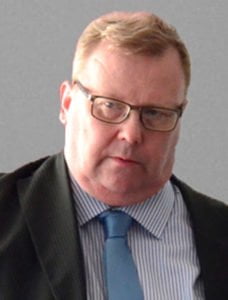
Prof. Dr. Jari Kaivo-oja
“What’s happening in the world right now illustrates the need for and the benefits of this type of tool,” says Dr. Jari Kaivo-oja, Professor of Kazimieras Simonavičius University, Head of the Master’s Programme in Future Insights and Strategic Management. According to him, the world has long lived under so-called VUCA (Volatility, Uncertainty, Complexity, Ambiguity) conditions. Volatility, uncertainty, complexity and ambiguity are elementary parts of many emerging phenomena, COVID-19 phenomena as well (https://www.futuresplatform.com/blog/covid-19-world-after). Under these real-life conditions, standard solutions are not appropriate and new agile methods are needed. Strategic insights and tools, such as Futures Platform, provide frameworks where both businesses, politicians and NGOs can explore the future, develop and test business strategies, and plan for change. This strategic foresight tool, which can be tailored to organizations for their special business and social needs, is widely used in European industries and business operations.
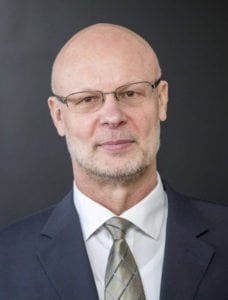
Prof. Dr. Arūnas Augustinaitis
The Futures Platform tool provides a wealth of detailed and useful information on global trends in various fields. This helps anticipate future changes and plan the organization accordingly, both in the short and long term, to keep up with global trends and to prevent investments in areas that will be less relevant in the future. Collaboration tools offered by the Futures Platform make it easy to involve team members or other stakeholders in processes.
“For example, municipalities can use the Futures Platform tool when planning urban and regional development scenarios, involving all stakeholders in the strategic process and see not only how their planned development correlates with global urban and regional development trends, but also with all stakeholders,” says Prof. Dr. Arūnas Augustinaitis, Lecturer of the Master’s Programme in Future Insights and Strategic Management.
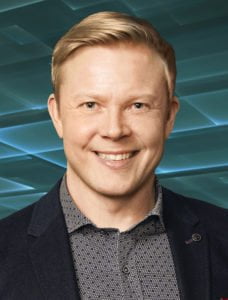
Saku Koskinen
“The recent global developments and the wild card, called Covid-19, has once again proven the importance of continuous foresight and horizon scanning work. We work daily with world leading organizations on future related processes and activities, and lately we have seen a strong signal from these organizations to build continuous and automated AI based foresight systems and solutions. There are two main reasons behind this development. First, a clear lack of time and resources to carry out these activities. Second, it is no longer enough to understand the trends and impacts of you own industry or domain, there is a need to be able to scan the future with a wider scope. That is why we at Futures Platform want to develop a world leading foresight platform,” says Saku Koskinen, Foresight Expert and Partner Futures Platform.
Creating updated future scenarios with Futures Platform is not a one-off project every few years. It is a consistent communication of the latest developments in trends that are important to the organization and its operations. A core feature of Futures Platform is the visual Trend Radar which visualizes which trends are affecting the future. By creating a digital radar around your theme of interest, you can see in a single image the holistic, 360-degree view of changes related to your theme. This tool helps CEOs and management teams work together with updated foresight analyses. The radar provides direct, one-click access to relevant articles and videos produced by experts on the future, providing a broader picture of how the world is changing. More about the Futures Platform can be found at www.futuresplatform.com. Currently, the Futures Platform is used by organizations such as Business Finland, Fortum, Fiskars Group, the European Commission’s Joint Research Center (JRC), IESE Business School in Barcelona, and other leading organizations.
For more information, please contact KSU Chancellor Darius Verbyla, E-mail: darius.verbyla@ksu.lt, Tel: +370 612 78 493
More about Big Data Excellence Centre here.
 Please be informed that contact activities at Kazimieras Simonavičius University are suspended from 2020 March 13 until April 17 (inclusive) for the prevention of Coronavirus (COVID-19).
Please be informed that contact activities at Kazimieras Simonavičius University are suspended from 2020 March 13 until April 17 (inclusive) for the prevention of Coronavirus (COVID-19).
The educational process will continue in a virtual (online) way. Students and lecturers will be informed about the online studies by e-mail.
All events organized by the University are also cancelled or postponed.
KSU students (including international students) and staff returned from COVID-19 affected countries, have to spend 14 days on quarantine. International students have to inform International Coordinator about their return and quarantine.
For more information, news and recommendation, please visit World Health Organization website: https://bit.ly/398tvIq
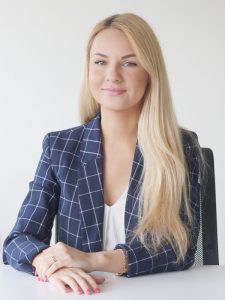
KSU Business School Director Deimantė Žilinskienė
Students starting their studies in Aviation Management from 2020 September will study under the renewed program. It will be complemented with a second foreign language, Russian or Spanish optionally.
The need for aviation staff to speak more than one foreign language emerged during regular meetings between Kazimieras Simonavičius University Business School and aviation companies.
“We meet periodically with human resources specialists from aviation organizations to analyse our Aviation Management curriculum and to discuss the competencies and specific skills needed for a person interested in working in the aviation industry,” says KSU Business School Director Deimantė Žilinskienė.
The cooperation with industry partners and additional analyses have made it possible to identify that one of the most important additional competencies for a person wishing to work in the aviation sector is the knowledge of foreign languages, which opens up more opportunities for both the employee and the employer.
“While KSU’s Aviation Management degree program is conducted in English and students are proficient in this language through additional Aviation English training, we decided to supplement the program with Spanish and Russian language subjects. The student will be able to choose which of these languages to study and will have the opportunity to master the language throughout the study period to the level required for fluent communication and work. We think that this integration of additional foreign language into the study program will enable our students to better and faster establish themselves in the labour market and open up wide opportunities to work worldwide,” says Deimantė Žilinskienė.
If you have recently come from China, Italy, South Korea, Iran, Japan, Singapore or other possible areas of the virus outbreak and within 14 days felt any symptoms similar to flu, please immediately call the emergency number 112 and follow all medical instructions.
For more information, news and recommendation, please visit World Health Organization website: https://bit.ly/398tvIq
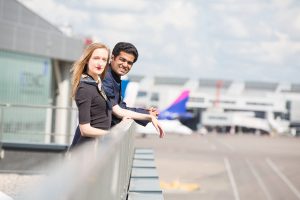 An annual survey of Aviation Management graduates of Kazimieras Simonavičius University revealed that all graduates work in the aviation industry. Majority of the graduates started working in their specialty during their studies, the rest of them got job within a month after graduation.
An annual survey of Aviation Management graduates of Kazimieras Simonavičius University revealed that all graduates work in the aviation industry. Majority of the graduates started working in their specialty during their studies, the rest of them got job within a month after graduation.
Aviation Management graduates work for companies such as GetJet Airlines, Wizz Air, Avia Solutions Group, Avion Express and BGS.
These employability indicators show that Aviation Management students are well prepared for work in the aviation industry, which requires specific knowledge and skills. Graduates are successful in a variety of sectors such as aviation security, communications, sales, and human resources in wide range of companies including airports, airlines, aircraft service centres and international airlines.
Deimantė Žilinskienė, Director of Kazimieras Simonavičius University Business School said, “There are several key aspects to the proper preparation of students for employment in the aviation industry right after graduation; close cooperation with business sector, internationalization (KSU students are taught by internationally renowned aviation experts – practitioners), and a multicultural environment specific to aviation companies. We also strive for bachelor theses to be focused on real aviation organization performance and process improvement, which allows the student to have deeper understating of the industry, improve expertise, develop analytical and critical thinking”.
The Aviation Management graduate’s employment rates also reflect the fact that the demand for Aviation Management professionals in the industry is very high and, it will keep growing according to various forecasts.